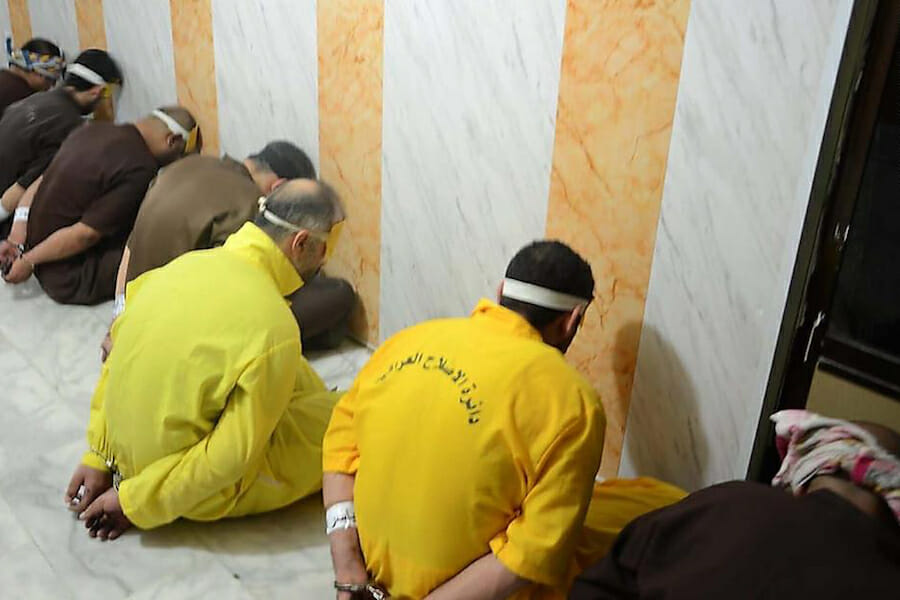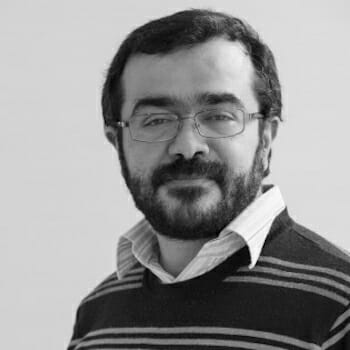
Iraqi Justice in the Post-ISIS Era
This summer, the Iraqi government has executed every ISIS convict sitting on death row, and has called on all foreign governments to take back more than 1,000 children of imprisoned ISIS fighters. Despite calls of alarm from the human rights community, Baghdad has continued to take an extraordinarily harsh line on all those affiliated with ISIS, not only fighters, but also cooks, cleaners and “wives.” With Iraq now dominated by Shia politicians, there is a risk that this aggressive, sweeping approach towards ISIS-affiliated individuals might further alienate the Sunni population and limit the possibilities for Sunni/Shia reconciliation. But according to a survey of the major Shia communities of Iraq, there is an opening for the Iraqi leadership to adopt a more nuanced approach that could address human rights concerns and foster greater prospects for reconciliation in post-ISIS Iraq.
Since the Prime Minister announced a total victory over ISIS at the end of last year, Baghdad has undertaken a far-reaching effort to round up ISIS members and their affiliates, detaining nearly 20,000 people on charges of (mainly ISIS-related) terrorism, and sentencing more than 3,000 suspects to death. For captured ISIS fighters, justice is delivered swiftly—in some cases trials have lasted only 20 minutes—with the UN High Commissioner for Human Rights warning of “irreversible miscarriages of justice” in some cases. Human Rights Watch too has raised serious concerns about due process, criticizing Iraq with “failing to distinguish between the culpability of doctors who protected lives under ISIS rule and those responsible for crimes against humanity.” In fact, some of those sentenced to the harshest penalties were very loose affiliates of ISIS and were co-opted into service during the height of the group’s power in Iraq or performed very minor duties for the group.
Iraqi justice may be harsh, but it is also popular with many Shia across Iraq. In a recent survey we undertook of more than 1,000 Shia in major Iraqi cities, we found widespread satisfaction with the speed and harshness of court sentences: only 25 percent thought there might be violations of justice in ISIS trials and more than 80 percent of the responses favored either the death penalty or life imprisonment for ISIS fighters, with a higher preference for the lethal punishment.
But the Shia we surveyed make important distinctions between the role and type of association with ISIS that are not currently reflected in the government’s anti-terrorism approach. For example, when asked to choose categories of ISIS-linked civilians who deserved the most severe punishment, less than five percent of responses chose wives of ISIS fighters, and only ten percent selected cooks and other support staff of ISIS. This indicates that many Iraqis may not take a blanket view of an ISIS association, and may be willing to support a more nuanced approach. Indeed, more than 30 percent of respondents thought conditional amnesty could be considered for members of ISIS who did not commit murder or rape.
This does not mean the Shia we surveyed are ready for ISIS-associated people to rejoin their communities—indeed less than 15 percent thought ISIS families should be reintegrated, while more than 40 percent thought they should be forced out of their residences. Our surveys do not suggest the road to reconciliation will be easy. But treating all ISIS affiliates alike does not necessarily align with the views we heard.
While many factors played a role in the tragedy of ISIS in Iraq, it is crucial that the new government avoids the mistakes of the past. Anti-Sunni and overbroad approaches by the US during the occupation of Iraq in 2003 laid the ground for the initial rise of ISIS. Indeed, these policies are often pointed to as creating large groups of disenfranchised Sunnis who felt no other recourse than to take up arms against the state.
Those ISIS members who committed serious human rights abuses must face justice. But our findings point to the need for a review of the overbroad approach to ISIS affiliates as a crucial way for Iraq’s leadership to build peace across the sectarian divide.
The views expressed in this article are those of the authors alone and do not necessarily reflect those of the United Nations University or the Japan Society for the Promotion of Science.

